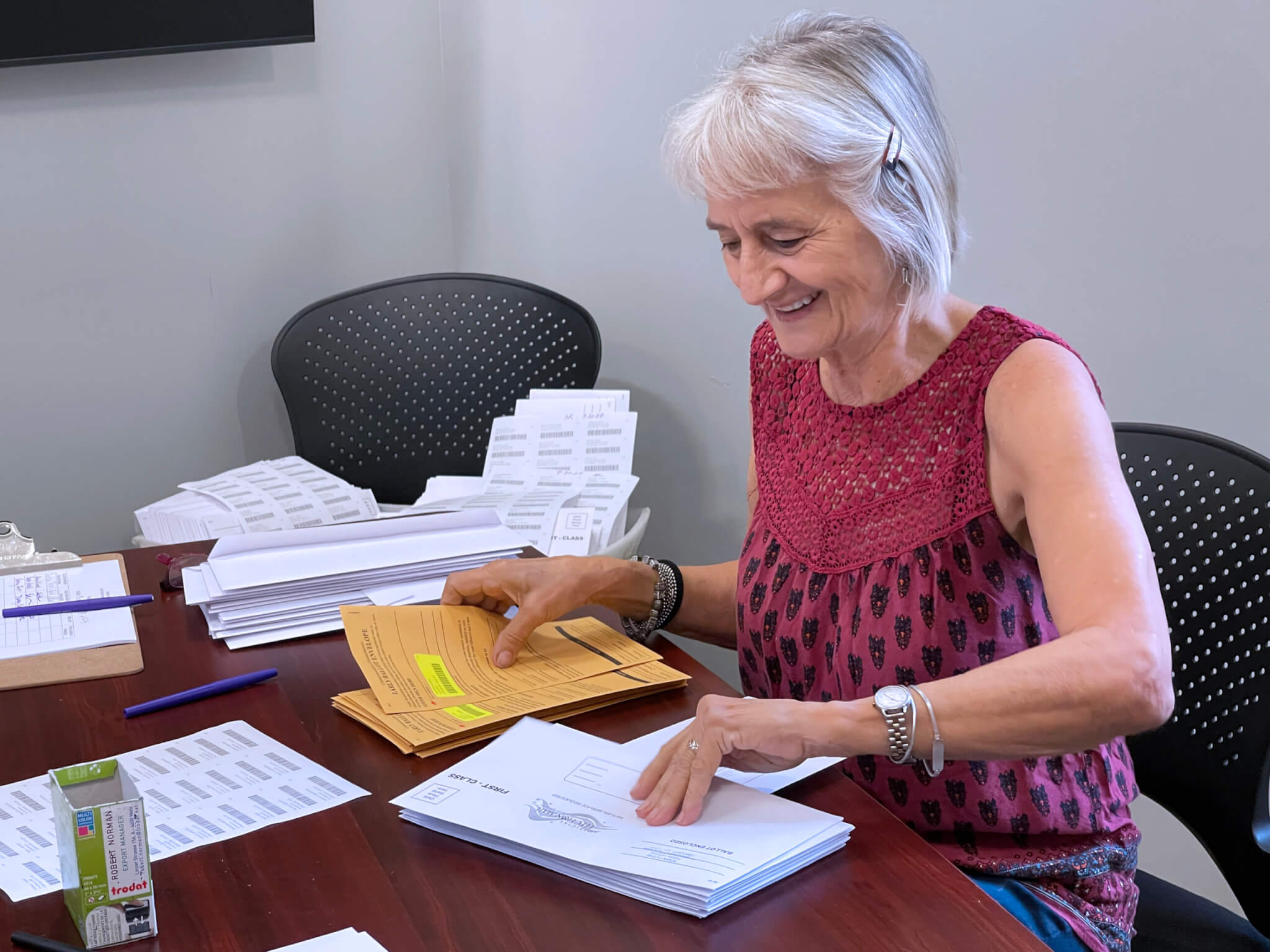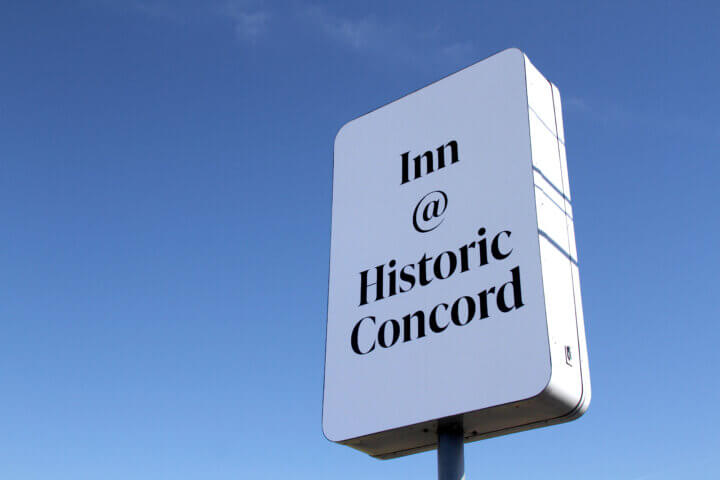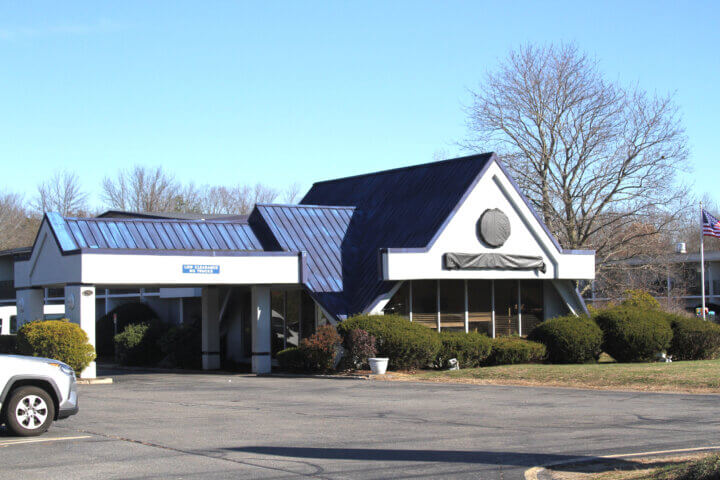By Laurie O’Neill — Laurie@concordbridge.org
It takes a village, or rather a team of villagers, to help elections in Concord run smoothly.
Few people realize what goes on behind the scenes to send out and then process returned mail-in ballots — thousands of them. But poll workers, and I am one of them, have the task down to a science.
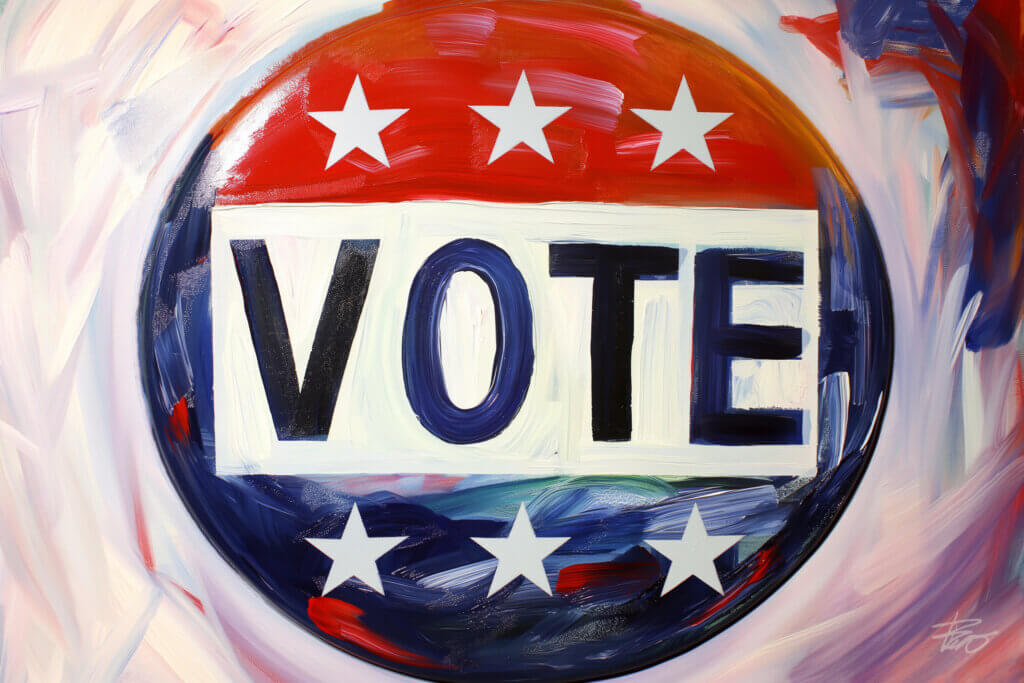
In a conference room at the far reaches of the Town House that insiders informally refer to as “Ballot World,” volunteers spend many hours during the weeks before each election — whether it’s a town, state, or presidential event — working with ballots that voters have requested.
I’ve served as a poll worker for the past few years. My teammates and I do this under the guidance of Karlen Reed, a former attorney who is the vice clerk for the Finance Committee. Her job is to schedule poll workers and coordinate ballot mailing production.
By mid-October this year, more than 6,100 mail-in ballots (including a relatively small number of absentee ballots) had been sent out, and many more requests are expected to be received and filled until the deadline (5 p.m. on Tuesday, October 29) for an application to be received by the town clerk’s office.
Filing and more filing
Processing mail-in ballots involves 42 steps, from receiving ballot requests and mailing them out to processing them once they’ve been returned. They include stuffing envelopes with ballots and instructions, registering ballots as received, separating returned yellow ballot envelopes from their white mailing envelopes, verifying voter signatures by comparing those on the ballot envelopes against those on mail-in ballot applications, filing the ballots by precinct while alphabetizing them by last name — there is a lot of alphabetizing and filing — and moving the ballots into and out of the vault.
We look for problems such as yellow ballot envelopes that lack a signature or ballots that are returned without the yellow envelope. If the signatures don’t match or something else has been done incorrectly, town officials follow up with the voter.
We double-check our work every step of the way, often asking for another set of eyes on a particular envelope or signature.
There are 14,195 registered voters in Concord, and town officials predict 85 to 95 percent to turn out between mail-in and in-person voting. Of a total of 12,391 votes cast in the 2020 election, nearly 10,000 votes were by mail.
The upcoming election has spurred a wave of interest by young voters, says Town Clerk Kaari Mai Tari — as of mid-October, 58 18-year-olds had requested ballots by mail.
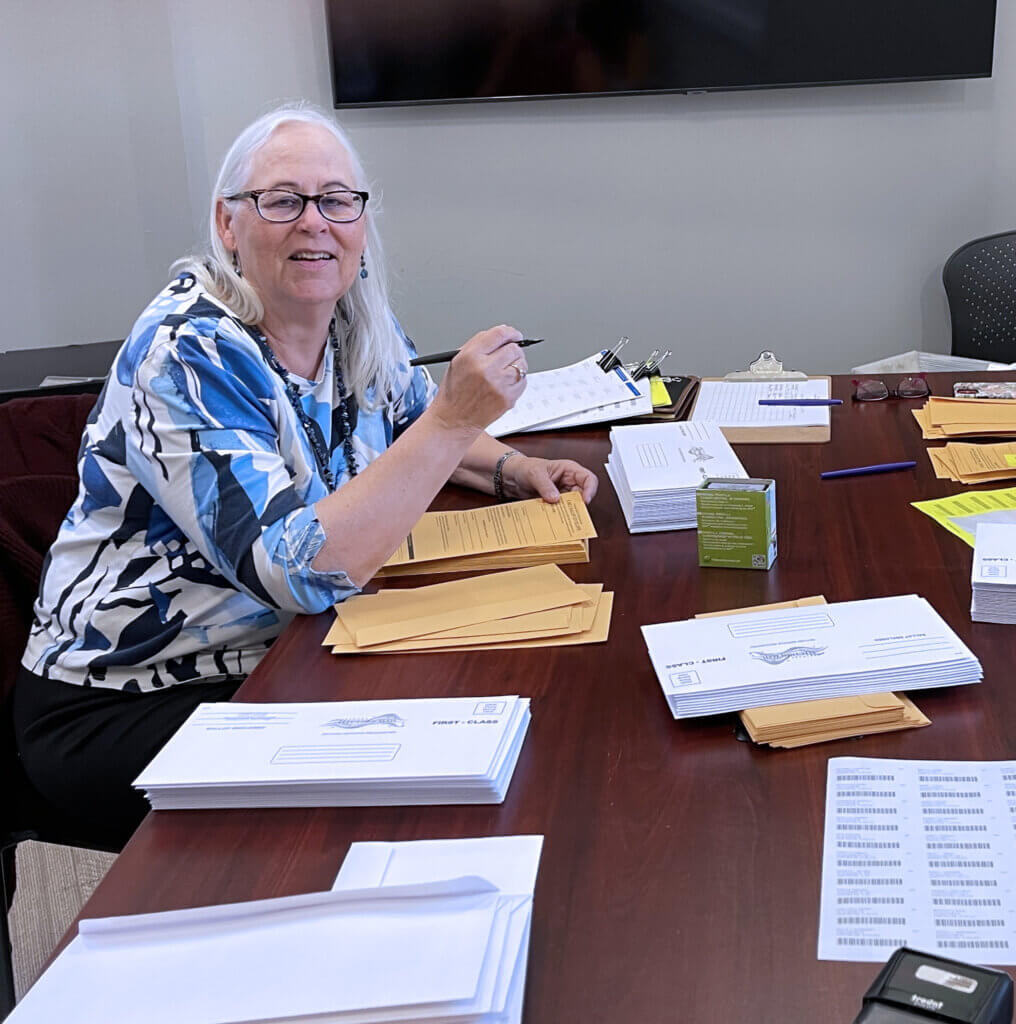
‘Wanting to do good’
Reed works with Tari and Assistant Town Clerk MaryLou Carney, who coordinates another, more visible, effort that is part of the election process. Carney organizes volunteers who serve as election workers and fill positions such as greeters, checkers, ballot box attendants, and closers during early in-person voting and on Election Day.
Weeks before each election, Reed sends out a call to about 40 poll workers to find out if and when we would be available to work a shift of usually two hours. She makes an effort to accommodate everyone who wants to participate.
Her volunteers are motivated by “wanting to do good,” Reed says — something that drives her as well. “Maybe it’s my Girl Scout training,” she adds with a smile.
Reed oversees the work with utmost seriousness, expecting accuracy and precision. But she appreciates her poll workers and is concerned with our comfort. “You can get bleary-eyed when filing or alphabetizing,” she says, “so a quick break or another pair of eyes on something ensures accuracy.”
‘Push, push, push’
Ballot World work is “a marathon,” Reed says. “The first week or so you send out ballots, the second you get them back, [and] the third you get more back and get them ready for Central Tab. It’s ‘push, push, push’.”
Central Tab, or Tabulation, is the process that takes place on Election Day, and that’s when mail-in ballots are fed into voting machines, then filed and safeguarded.
The Board of Registrars was to vote on October 16 on whether to allow Advance Removal for this election, as was done for the 2020 general election. This would save hours of time on Election Day as poll workers could partially process ballots on the day before the election.
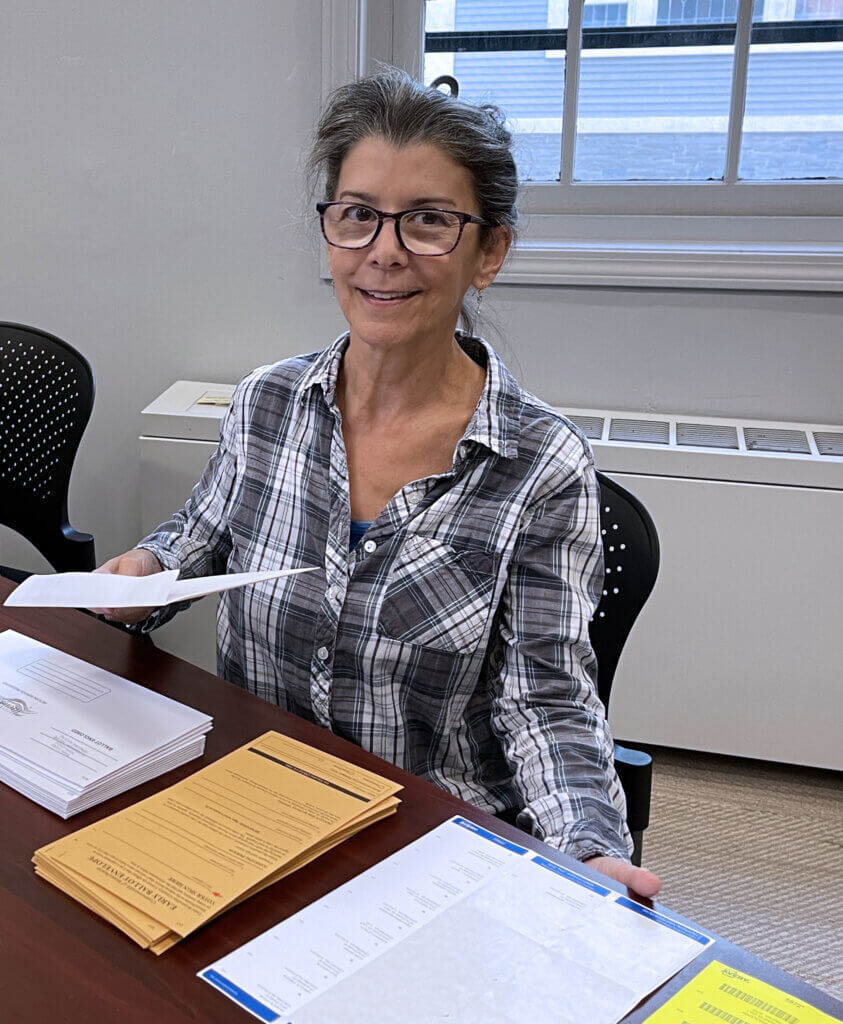
Photo: Laurie O’Neill/The Concord Bridge
Spending hours alphabetizing and filing ballot materials can be monotonous and tiring, but no one complains. “I thoroughly enjoy the work,” says Bean Nardi, a poll worker for the past few years.
“It’s project-oriented and satisfying, not to mention fun getting to know an interesting and friendly group of people.”
I’ve done this work for the last few years and enjoy it. We help each other, share the workload, and sometimes catch up on one another’s lives — even though most of the labor is done in silence, reflecting the focus required.
Saving time is a boon. An electric envelope opener, which can slit open three or four ballot envelopes in seconds, is a significant improvement over the small plastic devices we used to use, which made paper cuts an occupational hazard. Another time saver is color-coding the election ballot stickers, because some voters send in the previous election’s ballot by mistake.
In the last few years, I’ve learned much about the ballot process. Poll worker Robert Hilsinger agrees, saying he had no idea so many steps are required to run an election. He likes, as I do, to let others unfamiliar with ballot work know what is involved.
Accuracy is ‘paramount’
Most volunteers become poll workers because they feel it is their civic duty. “I believe that voting is very important, and making it possible for all eligible voters to cast a ballot is a worthy use of time,” says Joyce Davis.
“I wanted to learn how Concord handles this basic right and to participate directly and not just as a voter,” says Melissa Saalfield.
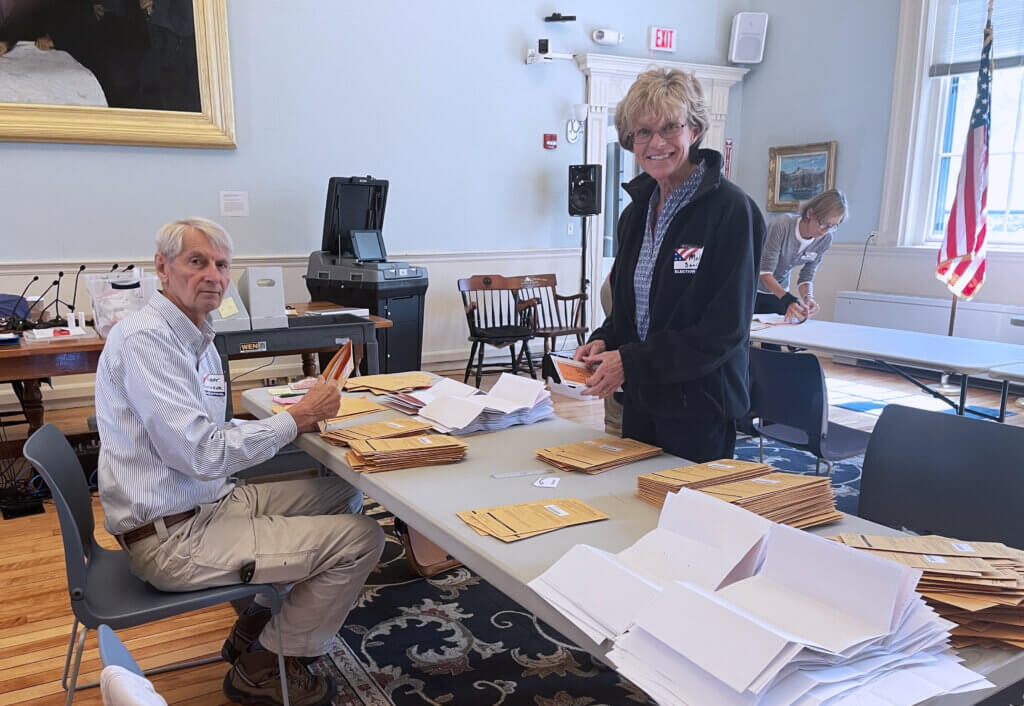
Photo: Laurie O’Neill/The Concord Bridge
“I always felt voting is a duty, and I wanted to do my part to make it easy,” says Concord Bridge editor Betsy Levinson. With her husband, she also assists the town on election and primary days.
Despite the concerns about miscounts or other irregularities, or even the charges of election fraud that make national news, I have observed that Concord’s process is secure and precise. Others have, too. “Everyone I have met as a poll worker takes the responsibility very seriously,” says volunteer Elise Woodward. “Accuracy is paramount.”
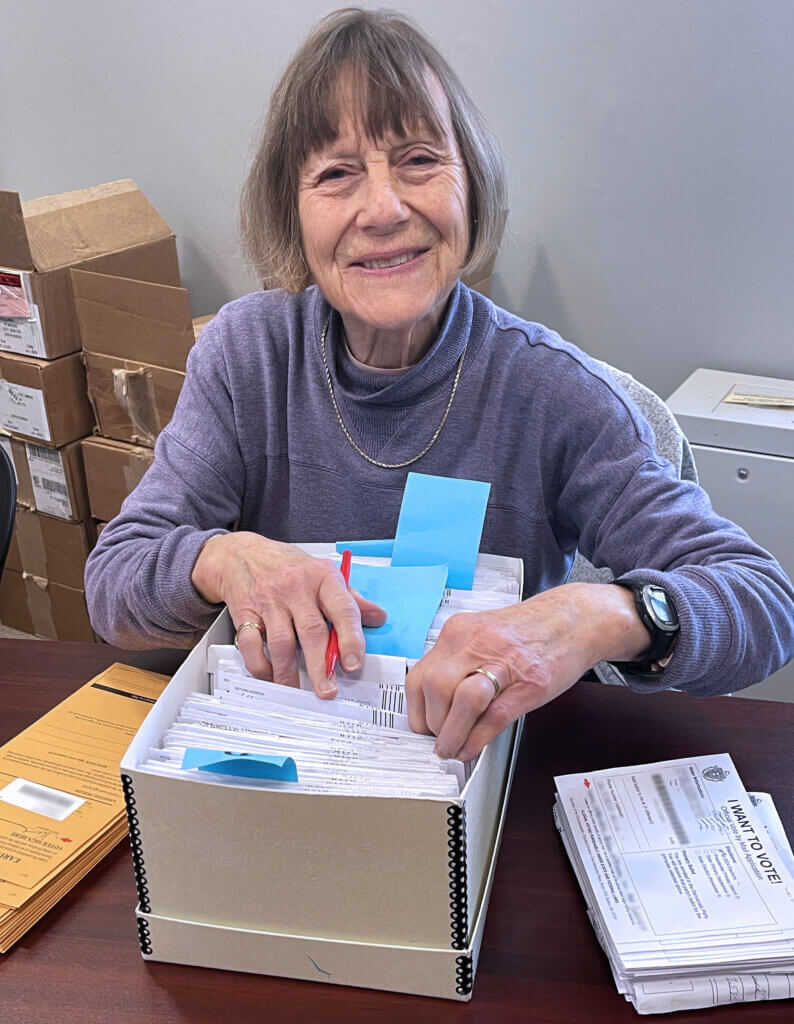
Photo: Laurie O’Neill/The Concord Bridge
Anne Fortier, a volunteer who is also on the Board of Registrars, which oversees the voting process under the leadership of the town clerk, says she considers voting as a “sacred duty and privilege” and is “happy to help make our votes safe.”
Born of necessity
The mail-in voting program is less than five years old, Reed told me, and illustrates the maxim that necessity is the mother of invention. She helped create the program in spring 2020, when the pandemic broke out and in-person voting involved masks, plastic shields, sterilized pens, and protective gloves. The governor signed the Votes Act in June 2022, which permanently authorized mail-in voting.
“No community was prepared to become a mail house when voting by mail became our new normal,” says Tari, “but Karlen’s team is making it happen, allowing us to get ballots to voters in a timely manner while also keeping up with our other duties.”
“We couldn’t do it without them,” she says of the poll workers. “There is just too much to do and too much at stake.”
It’s a “great relief,” Tari adds, “to be surrounded and supported by these wonderful citizens who so eagerly want to help.”
Interested in assisting with town election work? Learn more at concordma.gov/2438/Election-Workers.



